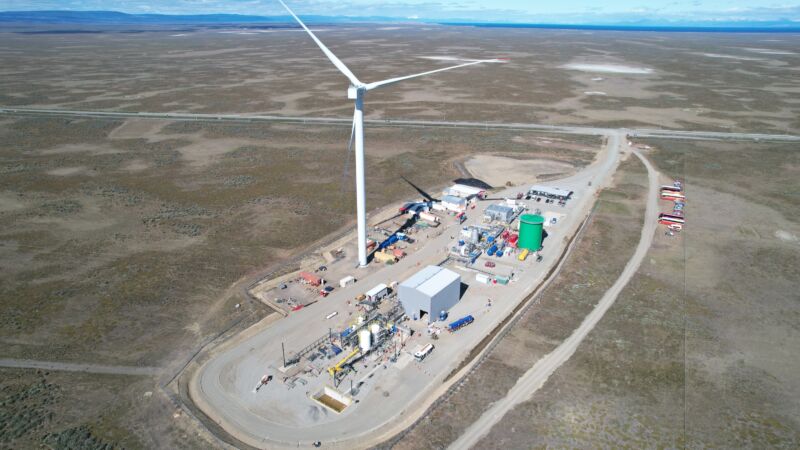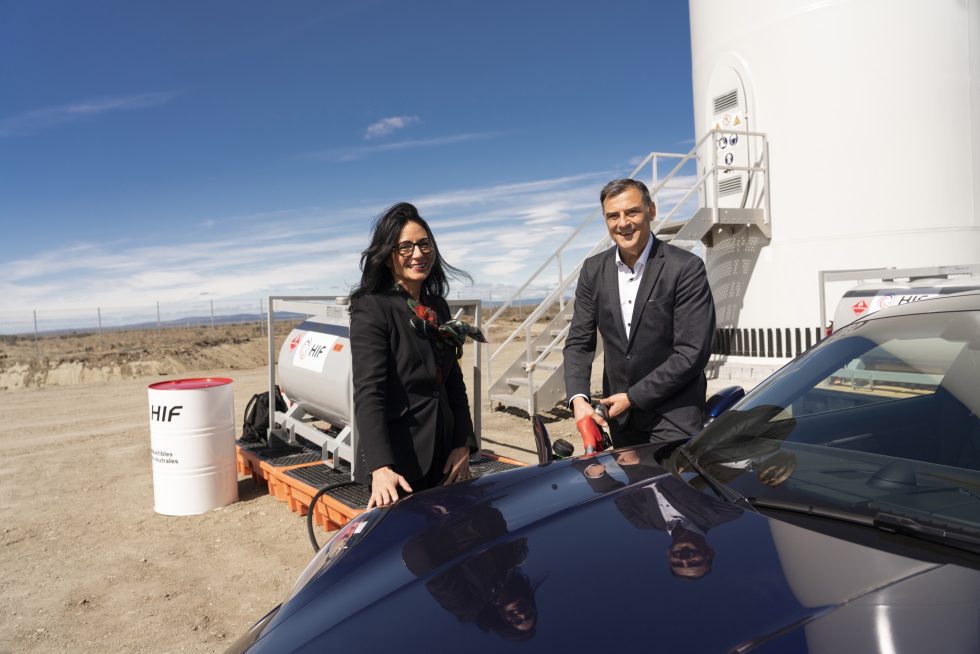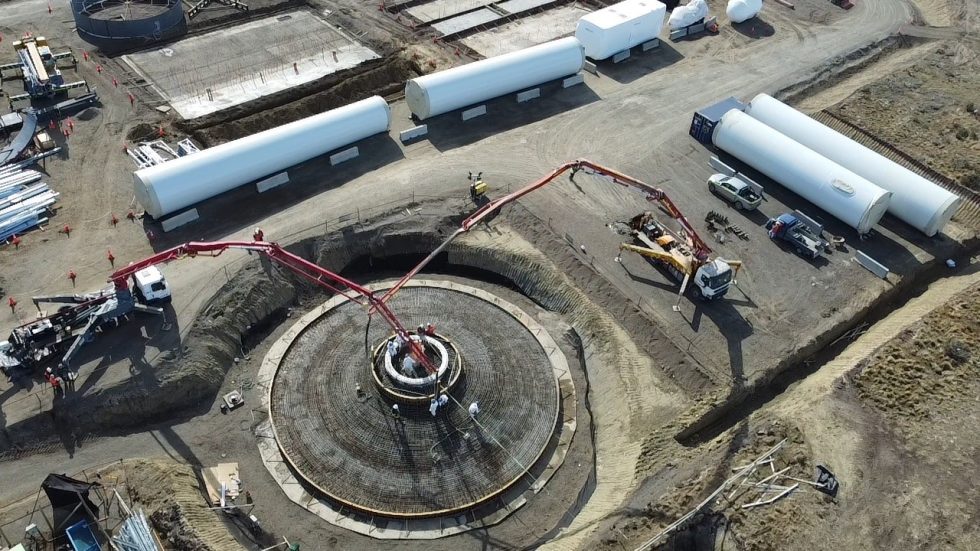
This week, a Chilean startup called Highly Innovative Fuels officially opened its first synthetic gasoline production facility. HIF was created to run the new plant, which is the result of a collaboration between the automaker Porsche, Siemens Energy, Exxon Mobil, Enel Green Power, the Chilean state energy company ENAP, and Empresas Gasco. Initially, the site will produce around 34,000 gallons (130,000 L) a year, scaling up to 14.5 million gallons (55 million L) a year by 2024, with plans to increase that tenfold to 145 million gallons (550 million L) a year by 2026. The first gasoline produced by the plant was used to ceremonially fill a Porsche 911, a task performed by Chile's energy minister, Diego Pardow.
"Yesterday, we celebrated together with all the employees from HIF and our partners, this historic moment," said Barbara Frenkel, Porsche's board member for procurement. "It was a very special evening, because we are encountering something which is, of course, very important to us for our sustainability strategy, but also as we see big potential in e-fuels for the decarbonization of the Earth's climate. So, the synthetic fuel we are producing here, stemming from wind energy, water and CO2 is really a compelling idea," she said.
The site, located in Punta Arenas in Southern Chile, will use wind to power the process—the area sees high winds roughly 270 days a year, and a wind turbine can expect to produce up to four times as much energy as one in Europe, according to Frenkel.

As you might expect, the project has been in the works for some time now. "In 2017, two engineers from Porsche on the one side and from AME—this was the predecessor company of HIF—came into contact with the idea [of] establishing an e-fuel pilot plant here down in [the] southern part of Chile, in Magellanes, where there is a high wind load," explained Michael Steiner, Porsche's board member for research and development.
"And from this, we started to find partners who would like to join this compelling idea, and we started with Exxon Mobil, who had a process developed—methanol to gas—and also with Siemens who is famous for electrolyzers. So getting electric energy into hydrogen and with these two partners, we started to plan the pilot plant we will open today," he said.
As Steiner explained, the e-fuel plant will use wind power to electrolyze water into hydrogen and oxygen. The hydrogen is then combined with carbon captured from the air or industrial sources to synthesize methanol, which in turn can then be converted into longer hydrocarbons to be used as fuel. The synthetic e-fuel is a direct drop-in for pump gasoline, and initially Porsche will take all the site's production and use it to run its one-make Porsche Supercup race series as well as using it to fuel vehicles at its Porsche Experience Centers around the world. (These are locations where one can go and test different Porsches.)
HIF has long-term plans to build out 12 synthetic fuel plants worldwide, including locations in the US and Australia, with a goal of each site capturing 2 million metric tons of CO2 per year. "Without any doubt, there are a lot of regions all around the world where you have potential of really high-efficient windmills or photovoltaic or even hydropower to get green energy," Steiner said.
"What might be a little bit more difficult is, could you get green CO2 in the same amount? So starting, you could always gain green CO2 from biomass or other processes, point sources, but long term, we have also to find better ways to directly capture CO2 from ambient air. So this is still a technology that needs some more research and development," Steiner said.

The synthetic e-fuel won't be exactly cheap—Steiner thinks at current prices, it works out to around $8 per gallon ($2/L), although that obviously doesn't include any taxes or duties, which make up most of the price of fuel in most regions around the world. But it's an important project, given that more than 1.3 billion combustion engine vehicles are operating on roads globally today, and with the best will in the world, those aren't all going to be replaced by electric vehicles any time soon.
We may even see some of the fuel end up in Formula 1. That sport has a goal of being carbon net-zero by 2030 and, in 2026, is switching to carbon-neutral fuel. Although Porsche's plans to enter F1 in 2026 as an engine manufacturer look to be in doubt, its corporate sibling Audi will do so that year, and it's possible that team may source its sustainable fuel from HIF.
"Factory" - Google News
December 20, 2022 at 10:09PM
https://ift.tt/B6D0pMv
Porsche’s synthetic gasoline factory comes online today in Chile - Ars Technica
"Factory" - Google News
https://ift.tt/Zelz6qI
Shoes Man Tutorial
Pos News Update
Meme Update
Korean Entertainment News
Japan News Update
Bagikan Berita Ini














0 Response to "Porsche’s synthetic gasoline factory comes online today in Chile - Ars Technica"
Post a Comment